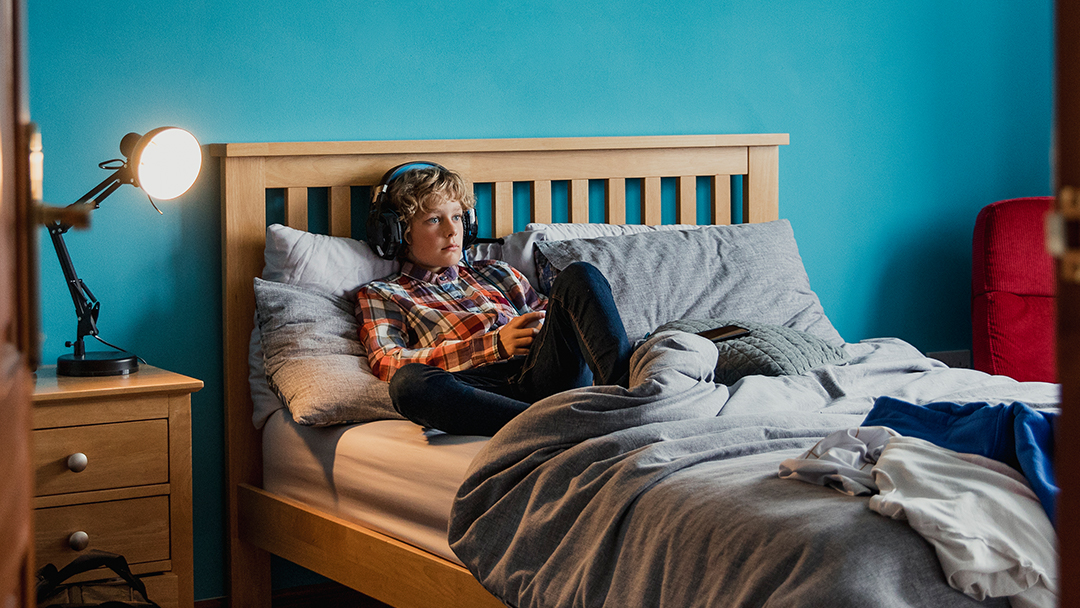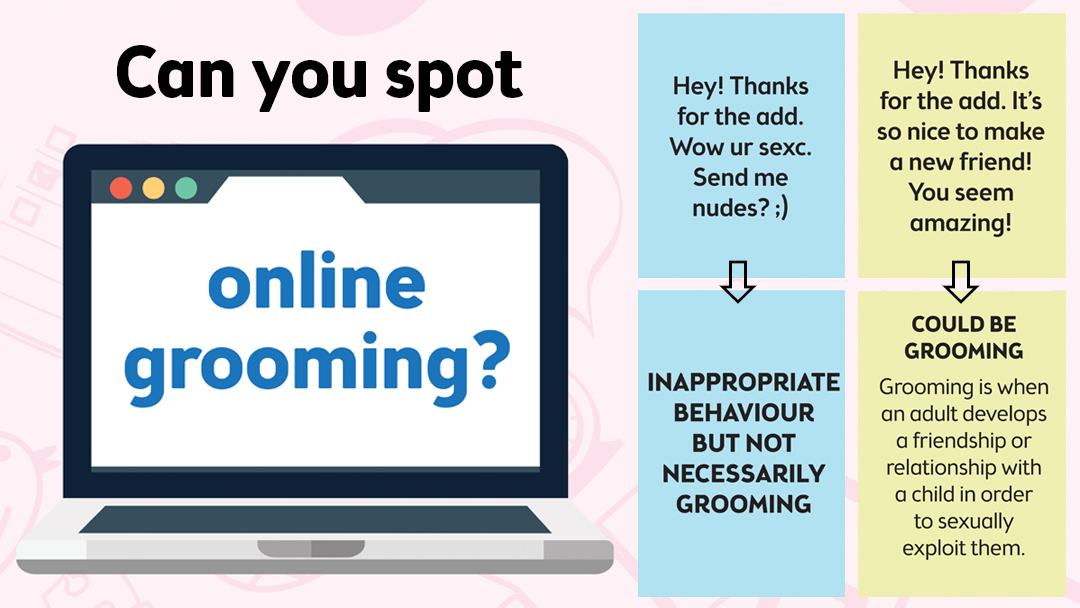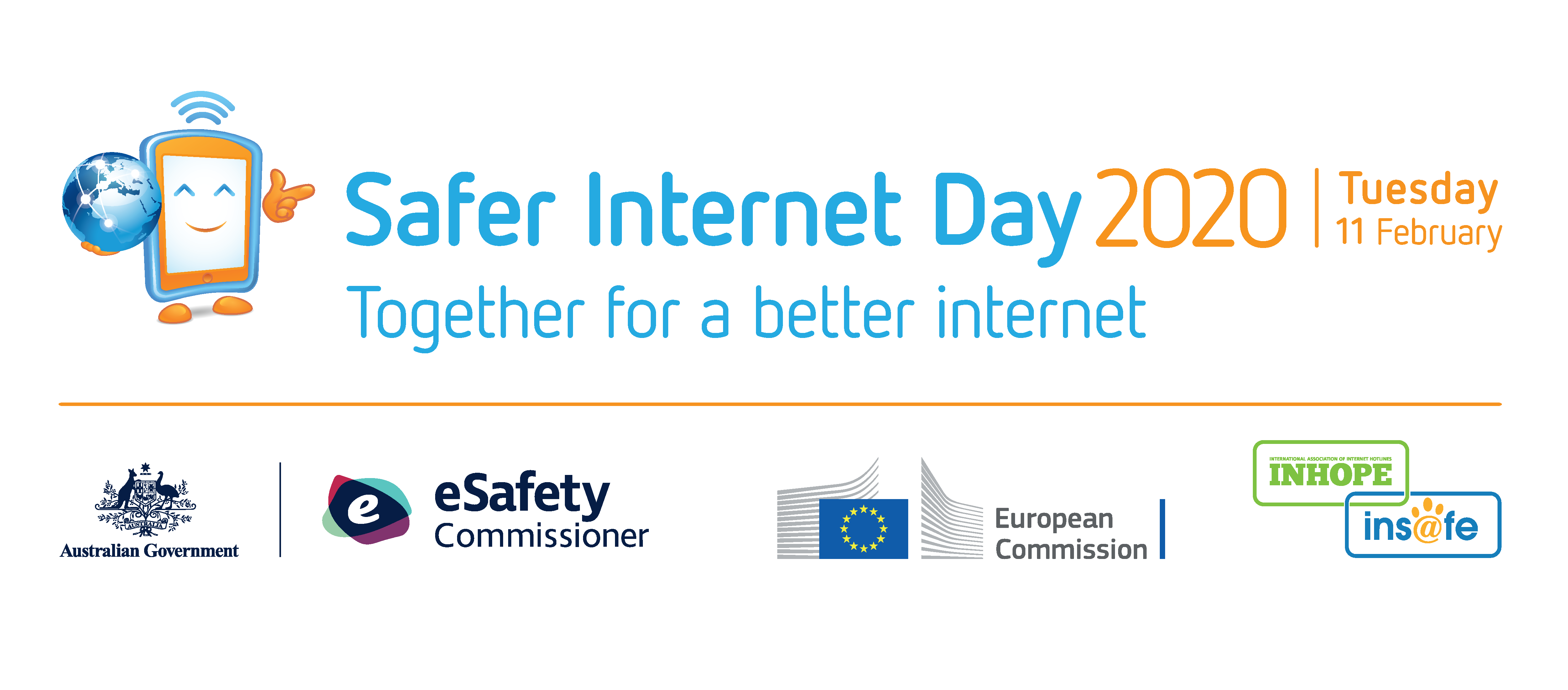- Blog
- Kids Helpline
- How to keep your kids safe online
How to keep your kids safe online
Did you know that 1 in 5 young people in Australia experience social exclusion, threats or abuse online?
Hanging out online is a regular part of life for most young people. But sometimes it can all go wrong - from catfishing to trolling to having their photos or even their identity stolen.
Tuesday 11 February is Safer Internet Day, so we're sharing some tips on how you can support your child to manage the risks in their online world but still enjoy its benefits.
Everything you or your child does online leaves a footprint.
Anything your child likes, saves, tags, shares or posts can be:
- Searched
- Shared
- Copied
- Made public
Your digital footprint is permanent. But there are things you can do to help your child ensure their footprint is one to be proud of.
Help your child create a positive digital footprint
- Regularly check their privacy and security settings with them
- Regularly Google their name together to see what is publicly visible
Help your child have a good online reputation with the 4Rs
- RESPECT others
- Be RESPONSIBLE
- Use REASONING
- Be RESILIENT
It's important to talk to your kids about online grooming.
Online grooming is when an adult starts an online relationship with someone under the age of 16 with the intention of having a sexual relationship with them. Adults who groom young people first develop a relationship by:
- Building a friendship
- Developing trust
- Seeming empathetic and genuine
Then they gain power over a young person by:
- Isolating the young person e.g. “Your parents don’t get you, but I do.”
- Using emotional abuse, including flattery, gifts, promises or threats to keep it going or keep it a secret
Online grooming is against the law... but can you spot it?
You can help keep kids safe from online grooming.
The relationship between you and your child is the most powerful protection against grooming. Besides all the usual safety precautions (encouraging your child to not talk to strangers and ensuring their account is secure), there are others things you can do to strengthen the bond between you and your child and introduce online critical thinking skills.
Teach your child about 'gut feelings'
Discuss safe and unsafe secrets
Discuss online boundaries and how to respond if someone crosses a boundary
Create a plan for what to do when stuff goes wrong
What about gaming addiction?

For most young people gaming is not a problem and may never be one, but for some it may become a problem or an addiction. The difference between healthy gaming and addiction is the negative impact it is having on the young person's life. It’s important to recognise the warning signs and start to make a change.
When they can't play, they might feel:
Sad
Moody
Anxious
Irritable
Preoccupied with gaming
Unable to focus on other activities
They might have problems...
With friends, family or study
- At home or at school
You might find them:
Spending more time playing to satisfy the urge, get game items, make progress or improve their status
- Neglecting responsibilities and activities that are important or they enjoy
- Lying to people they're close to about how much time they spend playing
- Continuing to play – even if they no longer enjoy it and it's causing them problems
- Unable to reduce playing, or have had unsuccessful attempts to quit
Talk to your kids about your worries regarding their life online – starting a conversation can encourage them to open up to you.
If you need support to manage your child’s online habits, try calling Parentline in your State or Territory for more support and guidance on this issue.
Kids Helpline is available to support young people in Australia. You can encourage your child to call, email or start a WebChat – anytime and for any reason.
Visit eSafety for more information for parents.
About yourtown...
We’re a community funded organisation that tackles issues like youth unemployment and mental health, and takes on issues like domestic and family violence.
Stay in touch
Show your support and get the latest news and updates on our yourtown Australia Facebook page.

